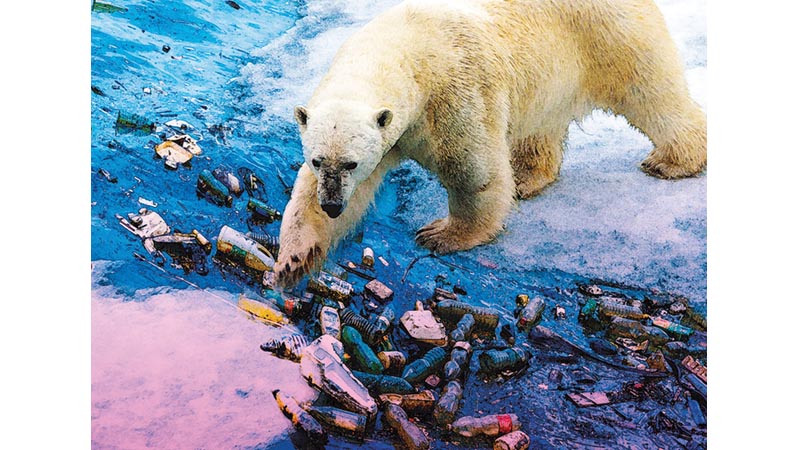Safeguarding oceans from climate change a global responsibility

Sunday, I climbed into the tight quarters of a Global Sub Dive submersible — essentially a clear bubble on a power platform — with sub pilot Randy Holt. As an islander and as the president of the Republic of Seychelles, an archipelago of 115 islands in the Indian Ocean, I am well aware of the ocean’s natural beauty. But our descent to 407 feet was a revelation as we passed through an incredible underwater world rich with marine life.
In just one area, I saw seven different species of coral and countless varieties of fish. We passed by a hammerhead shark, a tropical sunfish and a manta ray more than 6 feet wide.
I was proud to deliver a speech from that depth — a first for a head of state, I’m told — urging a greater worldwide effort to protect the oceans. But I wouldn’t want the novelty of the event to overshadow the message: Safeguarding the oceans and marine life from climate change, acidification, overfishing, deep-sea mining, plastic pollution and other threats is a global responsibility.
Much of the world’s food and half of the oxygen we breathe comes from ocean waters. The ocean is also the largest active carbon sink on Earth, absorbing more than 25 per cent of the carbon dioxide in the atmosphere. Allowing their continued abuse is self-destructive and invites catastrophe.
In Seychelles, we are working together to explore the depths of the Indian Ocean in our area — like most of the ocean floor around the world, it is largely uncharted. The project is a collaboration with more than 40 partners on a mission that combines innovations in technology, artificial intelligence, big data and communications to collect research that will better inform marine conservation.
Conservation is key
With an exclusive economic zone that is almost the size of Alaska, Seychelles’ pathway to prosperity is our ocean. Our vast ocean territory, one of the largest in the world, brings development opportunities but also responsibility.
Conservation is essential to ensure that the pillars of our economy, tourism and fisheries remain sustainable. By planning properly to protect our environment, we can be sure we are also protecting our people and their livelihoods against an uncertain future.
Seychelles has committed 30 per cent of our waters to marine protection by next year. This means limiting the use of these marine spaces to carefully regulated activities such as scientific research or controlled tourism, to achieve long-term conservation and bolster the resilience of marine ecosystems. The protection project has been funded by a groundbreaking agreement called Debt Swap for Ocean Conservation and Climate Adaptation. We pioneered the deal with the support of the Nature Conservancy and the Paris Club, a group of creditor countries dedicated to addressing the challenges of debtor nations.
The debt swap also helps fund other local conservation and climate-adaptation activities. We would like to inspire other governments to take action to protect the environment and save the oceans. Our debt-swap agreement could be a model for larger deals as conservationists buy a country’s sovereign debt in return for policy changes that will help the environment.
Danny Faure is the president of the Seychelles. Source: Washington Post



